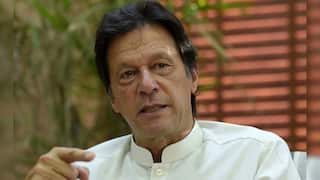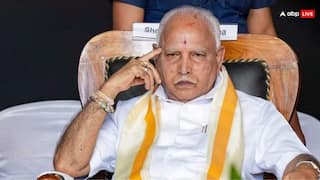World Breastfeeding Week 2023: Know The Relationship Between Breastfeeding And Postpartum Weight Loss
When you are breastfeeding, you are your child’s essential need for security. Additionally, breastfeeding is an amazing opportunity to bond with your child.

New Delhi: Breastfeeding is a unique privilege. As a new mother, you are essentially your newborn‘s nutritional universe. When you are breastfeeding, you are your child’s essential need for security. Additionally, breastfeeding is an amazing opportunity to bond with your child. But, it is also a span of exhaustion, sleep deprivation, special and at the same time, magical. In this article we will delve into the relationship between breastfeeding and postpartum weight loss.
Dr. Sameera S Rao, Consultant who is a Paediatrician and Neonatologist at Motherhood Hospitals, Bengaluru said, "Breastfeeding can play a significant role in postpartum weight loss for many women. The process of breastfeeding consumes extra calories, which can contribute to weight loss in the months following childbirth."
Here are some key factors listed down by her that explain the relationship between breastfeeding and weight loss:
Caloric expenditure: Producing breast milk requires energy, and the body burns calories during the process. On average, breastfeeding can burn about 300-500 extra calories per day. This caloric expenditure can help new mothers lose some of the weight gained during pregnancy.
Hormonal influences: Breastfeeding stimulates the release of certain hormones, like oxytocin, which can help the uterus contract to its pre-pregnancy size. These hormonal changes can also promote weight loss and contribute to the body's natural recovery process after childbirth.
Fat storage utilization: During pregnancy, the body stores fat to provide energy for breastfeeding and to support the baby's growth after birth. When breastfeeding, the body starts to use these stored fat reserves, aiding in weight loss.
Postpartum metabolic changes: After childbirth, a woman's metabolism undergoes changes to support lactation and recovery. These changes can result in an increased rate of fat burning, assisting in weight loss.
Appetite regulation: Some women find that breastfeeding helps regulate their appetite. Hormones involved in lactation can signal feelings of fullness, reducing the tendency to overeat or consume unnecessary calories.
"It's essential to note that the extent of weight loss from breastfeeding can vary from person to person. Not all women experience rapid weight loss solely due to breastfeeding, as individual factors such as genetics, diet, exercise, and overall lifestyle play a significant role in postpartum weight management. Additionally, not all women exclusively breastfeed, and some may supplement with formula or introduce solid foods early on. These factors can influence the number of calories burned through breastfeeding and, consequently, the impact on postpartum weight loss," Dr. Sameera S Rao further added.
Furthermore, some women may experience challenges with breastfeeding or may not be able to breastfeed due to medical reasons. In such cases, weight loss after childbirth can still be achieved through a balanced diet and regular exercise.
Diet For Breastfeeding Mothers:
From a dietary perspective, don't perplex yourself with too many rights and wrongs. It is better if you take good nutritional care of yourself as breastfeeding is the first nutritional decision you make for your child.
"Lactation describes the secretion of milk from the mammary glands to feed the young one. A lactating mother’s diet must be on a well-balanced and nutritious diet. Apart from calories and proteins during this time, there is an increased need for calcium and iron," said Nutritionist Harleen Gill.
She further listed down some food items that can be included in the diet of breastfeeding mothers:
- Good sources of iron include lentils, cereals, leafy green vegetables, and dried fruits such as raisins.
- For absorption, eat vitamin-rich foods.
- Include dairy products, soy milk, soy yoghurt, tofu and dark green veggies for calcium.
- Protein- Include protein foods 2-3 times per day in your diet such as meat, fish, eggs, dairy, beans, nuts and seeds.
- Energy- It takes extra energy to produce breast milk. Mothers need an additional 400-500 calories on average per day beyond their normal health requirement.
- Fluid intake - lactating mother should try to remain hydrated during this time by including 2-3 litres per day. They can include water, milk or soy milk. But caffeine should be restricted during this time.
- Vitamins and Minerals- Since supplements do not replace a healthful diet, some breastfeeding women might need multivitamin and mineral supplements in addition to a well-balanced diet such as calcium, vitamin A, vitamin C, vitamin D and zinc.
- Lactating mother should eat two servings of fruits per day. DHA-rich foods should be taken by the mother to promote the baby’s brain growth.
- Avoid alcohol and caffeine during this duration.
Tips For Breastfeeding Mothers To Help In Postpartum Weight Loss
"If the target of a lactating woman is to loose all of the weight gained during pregnancy, the time duration for this may vary from 6 months upto an year or may be even longer. This weight loss will depend upon various factors such as the woman’s metabolism, diet, exercise schedule and total weight gained during pregnancy. Immediately after delivery 10-13 pounds is lost owing to the weight of baby, placenta and amniotic fluid," said Dietician Garima Goyal.
She then went on to share tips for losing postpartum weight:
1. Calorie restriction: This is the foremost technique of losing weight- to consume fewer calories than you burn. But you have to be careful not to consume too less calories as it might interfere with the milk supply and make a breastfeeding mother more drained.
2. Make realistic goals: Always aim to lose 0.5-1 kilograms per week postpartum when trying to lose weight, as sudden weight loss will not be permanent. Be gentle on your body and take your weight loss journey slow to achieve long lasting results.
3. Say no to empty calories: When your body is over burdened with the excess weight it gained during pregnancy, it is a must to avoid the food sources of empty calories at any cost may it be white bread, cookies, cakes, desserts, junk foods etc.
4. Focus on your protein intake: Whenever trying to lose weight, focus on your protein intake and try to include at least one source of protein in your every meal. Protein helps to build the muscles and help in repair of the body cells.
5. Exercise is a must: Low intensity and short duration exercise is recommended post partum but always considering your body first. Choose a workout that doesn’t exert you too much such as yoga or walking. Take it slow and begin by 20-30 minutes of exercise per day, increasing it gradually.
6. Stay hydrated: When a breastfeeding mother is well hydrated, water helps to flush out the toxins and water weight from the body, thus aiding in weight loss. Have plain water or detox water, without addition of sugar.
7. Be well rested: To recover faster and lose weight easily, being well rested is very important. If the baby doesn’t let you have a long sound sleep at night, take small naps whenever you can.
8. Have small and frequent meals: Having small meals at a frequent interval aids in losing weight. Have three major meals and two snacks a day, you can even have more snacks if you wish as per your body’s needs.
Breastfeeding can be a valuable aid in postpartum weight loss due to increased caloric expenditure, hormonal effects, and fat storage utilization. However, it's important to approach weight loss with patience and focus on maintaining a healthy and balanced lifestyle that includes a nutritious diet and regular physical activity. Always consult with a healthcare professional before making any significant changes to your diet or exercise routine, especially during the postpartum period.
Top Headlines






































